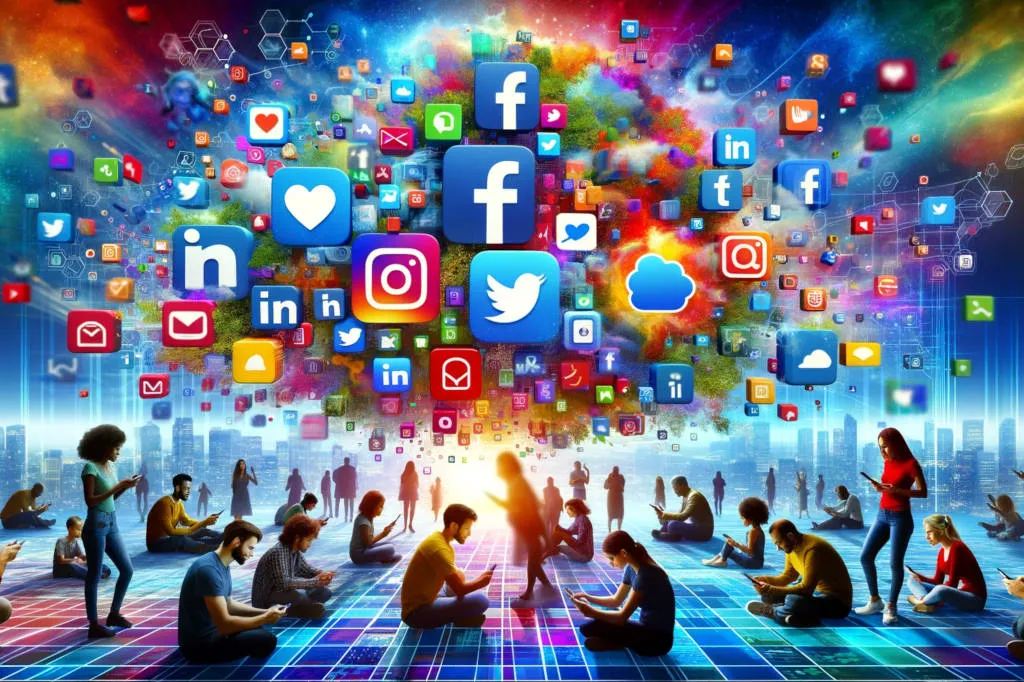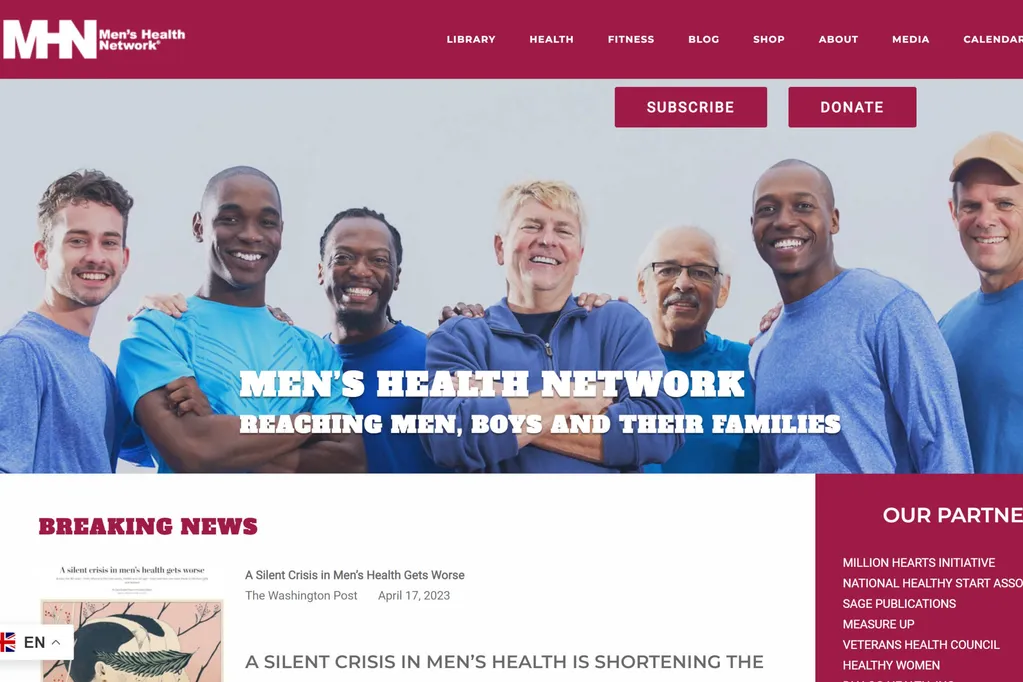Diving into the realm of “men’s mental health quotes,” we uncover a tapestry of emotions, experiences, and insights that highlight the often unspoken struggles many men face. Mental health, especially in men, is an area that has long been shrouded in stigma, preventing countless individuals from seeking the support they need. In this article, we’ll explore poignant quotes that capture the essence of men’s mental health, delve into the stories behind them, and provide resources for those seeking guidance. Join us in shining a light on this crucial topic and empowering men everywhere to embrace vulnerability and seek help when needed.
Table of Contents
The Stigma Surrounding Men’s Mental Health
In many societies, there exists a deeply entrenched stereotype that men should be stoic, resilient, and emotionally composed at all times. These expectations often manifest as an invisible weight on their shoulders, making it difficult for men to openly discuss their feelings or seek help for mental health challenges.
While women also face stigmas around mental health, the narrative for men is particularly unique. Many times, expressions of vulnerability or emotional distress in men are mischaracterized as weaknesses or failings. The damaging mantra of “real men don’t cry” is just one example of the kind of societal messaging that promotes emotional suppression.
Several factors contribute to the stigma surrounding men’s mental health:
- Traditional Gender Roles: Historical and cultural ideals often dictate that men must be the providers, protectors, and pillars of strength. This has, over time, led to an ingrained belief that men shouldn’t show ‘weakness’ by discussing emotional turmoil.
- Fear of Judgment: Many men hesitate to open up about their mental health concerns due to a fear of being perceived as less ‘manly’ or being ridiculed by peers.
- Lack of Awareness: Education and awareness campaigns around mental health have often been more women-centric, leaving a gap in outreach for men.
- Professional Repercussions: In some professional environments, men fear that revealing their mental health challenges might hamper career progression or job security.
As we delve into “men’s mental health quotes” later in this piece, it’s essential to remember that each quote represents a plea, a declaration, or a reflection against this backdrop of stigmatization. By amplifying these voices, we hope to challenge stereotypes and foster a more understanding and inclusive dialogue around men’s mental health.
Why Quotes Can Be Powerful
Quotes have a unique ability to distill complex emotions and experiences into concise and relatable words. A well-framed quote can resonate deeply with a reader, offering both solace and inspiration. In the context of men’s mental health, quotes can be especially influential, as they help break barriers of silence and misunderstanding.

Reasons Why Men’s Mental Health Quotes Are Impactful:
- Relatability: When someone reads a quote that mirrors their feelings, they feel seen and understood. It tells them they are not alone in their struggles.
- Inspiration: Powerful quotes can motivate individuals to take action, seek help, or even offer support to someone else.
- Awareness and Education: Sharing poignant mental health quotes can be an eye-opener for those unaware of the challenges many men face. It can lead to increased empathy and understanding.
- Conversation Starters: Quotes can act as springboards for deeper conversations about mental health, making it easier for men to communicate their feelings.
- Condensed Wisdom: Quotes encapsulate vast experiences, research, or feelings in just a few words, making them easy to remember and share.
In essence, quotes are more than just words – they’re echoes of lived experiences, cries for understanding, and calls to action. As we explore some of these quotes further in the article, consider not only the words but the stories and emotions behind them. Whether you’re someone struggling with mental health issues or someone seeking to understand and support, quotes can be a bridge connecting you to the larger narrative.
Top Quotes on Men’s Mental Health
The journey of understanding and advocating for men’s mental health is ongoing. Throughout this journey, many voices have emerged, shedding light on the intricacies of male emotional experiences. Here are some notable quotes on men’s mental health that provide insight, encouragement, and reflection.

- “It’s okay for men to cry, to feel down, and to express emotions. It’s time we break the mold of what it means to be ‘manly’.”
This quote emphasizes the importance of redefining masculinity in the context of emotions. - “Men also have mental health. It’s not unmanly to speak about it or seek help.”
A reminder that seeking help is a sign of strength, not weakness. - “Silence is the most potent scream. For many men, it’s their only way of communicating pain.”
This quote highlights the silent struggles that many men face. - “Behind every strong man is a story that gave him no other choice. It’s okay to share that story.”
Encouraging men to embrace their past, share their journey, and find strength in vulnerability. - “The bravest thing a man can do is to admit he needs help.”
A call to action for men to prioritize their mental well-being and seek support when needed. - “Strength isn’t about bearing a cross of silence; it’s about finding one’s voice amidst the noise.”
Encouraging men to break free from societal pressures and voice their mental health concerns. - “In a world that tells men to ‘man up,’ we need more voices that say it’s okay to ‘open up’.”
A call for society to change its perspective on men’s emotional expression.
These quotes serve as reminders that every individual’s emotional journey is valid, regardless of gender. By understanding, sharing, and reflecting on these sentiments, we can foster a world where men feel both heard and supported.
Inspirational Stories Behind the Quotes
Many of the impactful quotes about men’s mental health aren’t just words. They stem from profound experiences and real-life challenges. Let’s delve into the stories behind some of these quotes, shedding light on the personal struggles and triumphs of the individuals who shared them. Remember, every word in these men’s mental health quotes is a testament to resilience, understanding, and hope.

- “It’s okay for men to cry, to feel down, and to express emotions. It’s time we break the mold of what it means to be ‘manly’.” The Story: James, a retired army officer, had faced many battles in his life. However, his most challenging fight wasn’t on the battlefield but within himself. After experiencing trauma, James found himself struggling with post-traumatic stress disorder. Over time, he realized that shedding tears and speaking about his feelings was his way of healing. His journey became an inspiration for many men in the military community, showing them that true strength lies in embracing vulnerability.
- “Men also have mental health. It’s not unmanly to speak about it or seek help.” The Story: Daniel grew up in a traditional household where men were expected to be the pillars of strength, rarely displaying emotion. After enduring a personal loss, he battled depression in silence for years. Eventually, he reached out for help and, through therapy and community support, found his footing again. Today, Daniel is a mental health advocate, urging men to see seeking help as a sign of courage rather than weakness.
- “Silence is the most potent scream. For many men, it’s their only way of communicating pain.” The Story: Elijah, a talented musician, used his music as an outlet for his emotions. Yet, outside of his melodies, he grappled with expressing his feelings verbally. He experienced anxiety, and often his songs conveyed the pain he couldn’t vocalize. After releasing a track that transparently spoke about his struggles, he received an outpouring of support from fans who related to his experience, highlighting the silent battle many men face.
These stories serve as a reminder that behind every quote about men’s mental health is a tale of perseverance, understanding, and transformation. By sharing and acknowledging these narratives, we pave the way for a more inclusive and compassionate conversation surrounding men’s emotional well-being.
How to Use These Quotes for Personal Growth
Quotes are more than just words. They are tools that can inspire personal growth, resilience, and understanding. Harnessing the power behind these quotes can facilitate reflection, motivate action, and even drive transformative change. Here’s how you can use these mental health quotes for your own personal and emotional development:

- Reflection and Journaling: Start by picking a quote that resonates with you. Reflect on its meaning and jot down your thoughts in a journal. How does the quote relate to your own experiences or challenges? Journaling provides a safe space to process emotions, gain clarity, and develop a deeper understanding of oneself.
- Daily Affirmations: Adopt a quote as your mantra or affirmation. Recite it daily to remind yourself of your worth, strength, and resilience. Over time, you’ll internalize the message, boosting your self-esteem and confidence in tackling life’s challenges.
- Engage in Conversations: Use these quotes as conversation starters with friends, family, or support groups. They can act as gateways to deeper discussions about men’s mental health, allowing you to share, learn, and connect with others on a meaningful level.
- Visual Reminders: Print your favorite men’s mental health quotes and place them where you’ll see them daily — on your desk, fridge, or bedroom wall. These visual cues serve as daily reminders of your journey towards better mental well-being and personal growth.
- Incorporate in Meditation or Mindfulness Practices: During meditation or mindfulness sessions, focus on a selected quote. Ponder its meaning, breathe in its essence, and let it guide your session. This can help ground you and provide direction to your introspection.
Harnessing the power of mental health quotes in these ways can be an instrumental step towards personal growth. They serve as both a beacon of hope and a catalyst for change, urging us to face challenges head-on and seek the support and understanding we deserve.
Quotes to Aid in Breaking the Stigma
The societal stigma surrounding men’s mental health has for too long prevented many from seeking the help they need. However, the right words have the power to challenge and change perceptions. Here are some compelling men’s mental health quotes that can help in breaking down the barriers of this deep-rooted stigma:

- “It’s not the weight of the world on your shoulders that breaks you, it’s the way you carry it.”
Anonymous Reflecting on the pressures men often feel to be the “strong” ones, this quote emphasizes the importance of perspective and seeking support when needed. - “Mental health is not a sign of weakness; it’s a sign of strength.”
Unknown Challenging the common misconception that mental struggles equate to weakness, this quote champions the idea of vulnerability as strength. - “Real strength is not just a condition of one’s muscle, but a tenderness in one’s spirit.”
McCallister Dodds Emphasizing the multi-dimensional nature of strength, this quote encourages men to embrace emotional sensitivity. - “Seeking help for your mental health doesn’t make you less of a man. Silence does.”
Anonymous A call to action for men to speak out and share their feelings, stressing the dangers of suppressed emotions. - “Battles aren’t always fought in the open. Some are waged within, and they are no less real.”
Unknown Recognizing the internal struggles many men face, this quote highlights the very real challenges of mental health. - “Just because you can’t see it, doesn’t mean it’s not there. Men hurt too.”
Anonymous Addressing the invisible nature of mental pain, this quote calls for increased empathy and understanding.
Incorporating these quotes into daily life and conversations can be a powerful tool in raising awareness and breaking down stigma. They serve as reminders that strength is multifaceted, and seeking help is not just okay—it’s commendable.
Famous Personalities Advocating for Men’s Mental Health
The conversation surrounding men’s mental health has been elevated in recent years, thanks to the efforts of several public figures who have used their platforms to shed light on this important issue. Here are some famous personalities who have been vocal advocates for men’s mental health:

- Prince Harry The Duke of Sussex has been open about his struggles with mental health, especially concerning the tragic loss of his mother at a young age. He has emphasized the importance of seeking therapy and has worked on numerous mental health campaigns and initiatives.
- Dwayne “The Rock” Johnson This superstar wrestler-turned-actor has spoken candidly about his battles with depression. Johnson’s transparency on the topic serves as a powerful reminder that mental health struggles can affect anyone, regardless of their external success or strength.
- Michael Phelps The most decorated Olympian of all time, Phelps has been forthright about his challenges with depression and suicidal thoughts. His openness has played a significant role in destigmatizing mental health issues among athletes.
- Jon Hamm The actor, best known for his role in “Mad Men”, has discussed his experiences with therapy and medication to treat depression. Hamm has stressed the importance of seeking help and not suffering in silence.
- Kevin Love The NBA player penned a powerful essay detailing his panic attack during a game and the subsequent realization of the importance of mental well-being. Love’s bravery in coming forward has encouraged many others to do the same.
- Chris Evans The “Captain America” actor has shared his struggles with anxiety, proving that even superheroes have their challenges. Evans’ openness about attending therapy has made the topic more accessible for many of his fans.
By leveraging their influence, these personalities have not only brought awareness to men’s mental health issues but have also encouraged countless others to seek help and share their own stories. Their advocacy underscores the fact that mental health struggles know no bounds of fame, success, or strength.
Impact of Sharing Quotes on Social Media
In today’s digital age, the power of social media is undeniable. Platforms like Instagram, Twitter, and Facebook play pivotal roles in shaping public discourse and influencing societal norms. One of the ways this influence manifests is through the sharing of “quotes,” particularly those related to pressing issues like men’s mental health. But what exactly is the impact of sharing quotes on these platforms? Let’s dive in.

- Raising Awareness When individuals share quotes on social media, they contribute to raising awareness about the subject. Every shared quote has the potential to reach hundreds or even thousands of individuals, many of whom might be unaware of the gravity of the issue.
- Normalizing Conversations Historically, discussions surrounding men’s mental health have been taboo. By openly sharing and engaging with such quotes on public platforms, the topic is gradually destigmatized, encouraging more men to open up about their experiences.
- Providing Support For many, seeing a quote that resonates with their feelings can be comforting. It’s a reminder that they’re not alone in their struggles and that others understand and empathize with them.
- Encouraging Action Quotes often serve as a call to action. When someone reads a powerful quote on men’s mental health, they might be inspired to seek help, join a support group, or even start a conversation with a loved one about their mental well-being.
- Broadening Perspectives For those fortunate enough not to experience mental health challenges, such quotes can provide insight into the struggles others face, fostering empathy and understanding within communities.
- Creating Virtual Communities The collective sharing and commenting on quotes create virtual communities where individuals can connect, share personal stories, and offer support to each other.
In conclusion, the simple act of sharing mental health quotes on social media can have profound and far-reaching effects. It’s not just about spreading words; it’s about sparking change, fostering understanding, and building a more compassionate digital world.
Artistic Representations: Posters and Visuals with Quotes
Visuals have a powerful ability to evoke emotions and drive messages home. When quotes are integrated with compelling artwork, the result can be both impactful and memorable. This fusion of words and visuals is not just about aesthetics; it’s about conveying deeper meanings and narratives. So, why are posters and visuals with quotes so influential, and how can they be best used?

- Visual Memory Enhancement People tend to remember visuals better than text alone. When a poignant men’s mental health quote is paired with a fitting image, it reinforces the message and makes it more likely to stick in the viewer’s memory.
- Evoking Emotions Art has the innate ability to resonate with our emotions. When a relatable quote is presented alongside a touching visual, it can amplify the emotional response, making the message more powerful.
- Enhancing Shareability Social media platforms are predominantly visual. Artistic posters with quotes are more likely to be shared, liked, and commented on, thus increasing their reach and impact.
- Breaking Down Complex Ideas Some concepts related to men’s mental health can be complex. Visuals can simplify and represent these ideas in more digestible formats, making them accessible to a wider audience.
- Raising Awareness in Public Spaces Posters with quotes can be displayed in public areas like schools, offices, or community centers. They serve as constant reminders and can initiate important conversations.
- Merchandising Opportunities Artistic representations of these quotes can also be printed on merchandise like T-shirts, mugs, or tote bags. Not only do they act as conversation starters, but they also provide an avenue for supporting mental health initiatives through sales.
In conclusion, artistic representations, especially posters and visuals with men’s mental health quotes, bridge the gap between information and emotion. They serve as tools for advocacy, education, and support, reminding every viewer of the importance and nuances of men’s mental well-being.
Community Shares: Personal Quotes from Everyday Men
In discussing men’s mental health, it’s vital to include the voices of those who experience it daily. While famous quotes and celebrity endorsements can be impactful, there’s immense power in the stories and sentiments of everyday men. These personal quotes shed light on the raw, unfiltered reality many men face, emphasizing the importance of openness and mutual support. Let’s delve into some personal quotes shared by men from various walks of life and explore their significance.

- “It’s okay not to be okay. Some days, the weight feels heavier. But acknowledging it is the first step to lifting it.”
- James, 29, teacher
- “I used to think crying made me less of a man. Now I realize it just makes me more of a human.”
- Mark, 42, construction worker
- “Speaking up about my depression was the toughest thing I’ve done. But it also brought the most unexpected support from those around me.”
- Raj, 35, IT consultant
- “We often wear masks, not just on Halloween but every day. It’s time we showed our real faces, our real emotions.”
- Carlos, 50, artist
- “I wish someone had told my younger self that mental battles are as real as physical ones. It’s time we teach our sons the same.”
- Kwame, 40, physician
In showcasing these personal quotes from everyday men, we aim to highlight the universality of men’s mental health struggles. Their stories remind us that mental health knows no boundaries of age, profession, or background. By sharing and amplifying these voices, we hope to create a more understanding, empathetic, and supportive community.
Tips on Starting Conversations Around Men’s Mental Health
Addressing men’s mental health is essential, but initiating a conversation on the subject can be challenging. Societal pressures often lead to reluctance, and it can be hard to find the right words or setting. However, with a gentle approach and some strategic tactics, you can pave the way for meaningful discussions. Below are some tips on how to kick-start conversations around men’s mental health.

- Choose a Comfortable Setting
Selecting the right environment can set the tone for an open discussion. Opt for quiet, private places that feel safe and free from distractions or potential interruptions. - Be Open-minded and Non-judgmental
Approaching the topic with understanding and compassion is key. Listen actively without interrupting or passing judgment. Show genuine interest in their feelings and experiences. - Use Open-ended Questions
Questions like “How have you been feeling lately?” or “Is there something you’d like to talk about?” encourage more in-depth responses. It gives the individual an opportunity to express themselves without feeling cornered. - Share Personal Experiences
Sometimes, opening up about your own experiences or challenges can make others feel more comfortable doing the same. This creates a mutual understanding and breaks down barriers. - Educate and Share Resources
Offering information or directing them to professional resources can be invaluable. This not only shows that you care but also provides them with tools to understand and manage their feelings better. - Reassure Confidentiality
Emphasize that the conversation remains between the two of you. Respecting their privacy fosters trust and encourages openness. - Avoid Minimizing Their Feelings
Statements like “You’ll get over it” or “It’s not a big deal” can be dismissive. Recognize their feelings and validate their experiences. - Encourage Professional Help When Necessary
If the individual seems to be in distress or their mental health is deteriorating, kindly suggest seeking professional help. Offer to assist them in finding the right therapist or counselor. - Follow Up
Checking in after your conversation shows that you genuinely care and are there to support them in the long run. - Educate Yourself
The more you understand about men’s mental health, the better equipped you are to engage in meaningful discussions. Read up, attend workshops, or watch documentaries to stay informed.
Starting conversations around men’s mental health can be a stepping stone to breaking down societal barriers and stigmas. While it may be challenging, remember that your efforts can make a significant difference in someone’s life. By providing a safe space for dialogue, we can collectively usher in an era of increased understanding and support.
Resources and Organizations Advocating for Men’s Mental Health
The advocacy for men’s mental health has seen a significant surge in recent years, thanks to numerous organizations and resources dedicated to addressing and destigmatizing the issue. These entities provide invaluable support, education, and outreach to men, their families, and communities at large. Let’s delve into some of these pivotal resources and organizations.

- Men’s Health Network
A non-profit organization aiming to educate men, boys, and their families about health issues they may face throughout their lives. Their objective is not just physical health but also the mental and emotional aspects. - HeadsUpGuys
Focused specifically on depression, this resource offers information, tips, and personal stories to support men fighting depression. Their website contains tools to help recognize signs of depression and provides actionable advice. - Man Therapy
Dr. Rich Mahogany’s “Man Therapy” is a unique digital resource that tackles men’s mental health with a blend of humor and seriousness. It offers tools, advice, and resources tailored for men. - Movember Foundation
While widely recognized for its November mustache-growing campaign, Movember Foundation also invests heavily in mental health initiatives. They emphasize the importance of open conversation and timely intervention. - CALM (Campaign Against Living Miserably)
UK-based CALM is leading a movement against male suicide, offering services to men in crisis and campaigning for societal change concerning men’s mental health. - Men’s Minds Matter
A UK-based organization, it emphasizes understanding the psychological needs of men and boys. They provide resources, research, and strategy tools to professionals and the public. - The Good Men Project
A diverse community that discusses what it means to be a man in the 21st century, including explorations into mental health, relationships, and masculinity. The platform encourages open dialogue and personal stories. - Talkspace and BetterHelp
While not exclusively for men, these online therapy platforms cater to everyone, ensuring that men have an accessible avenue to seek professional counseling.
The focus on men’s mental health is increasing, yet there’s a long way to go. By utilizing and promoting the aforementioned resources and organizations, we can collectively bridge the gap, destigmatize the conversation, and provide comprehensive support for men everywhere.
Conclusion: Men’s Mental Health Quotes
The journey to destigmatize men’s mental health is an ongoing challenge. While society has made strides, there remains much work to be done. Through the power of “mens mental health quotes”, we not only raise awareness but also provide solace and understanding. Quotes, paired with the stories and resources behind them, have the ability to resonate deeply, inspire action, and foster open conversations. It’s essential that we all play our part, be it sharing a quote, supporting organizations, or simply lending a listening ear. Every effort counts, and together, we can cultivate a world where men’s mental well-being is acknowledged, understood, and prioritized.
For those seeking practical strategies to improve mental health and resilience, our article ‘99 Coping Skills: An Ultimate Step-by-Step Guide to Success‘ offers a comprehensive collection of techniques tailored to support men’s mental health and well-being.
Call to Action
Let’s make a change together. If the “mens mental health quotes” and stories shared here resonated with you, take a moment to share this post with friends, family, and your wider network. Every share can open eyes, soften hearts, and potentially be the catalyst someone needs to seek help or start a conversation. Remember, your voice matters. Together, we can break the silence and shatter the stigma surrounding men’s mental health. Start today. Share, discuss, and be the change you wish to see. 🔗👥🌍
Additionally, you’re invited to explore our collection of articles:





